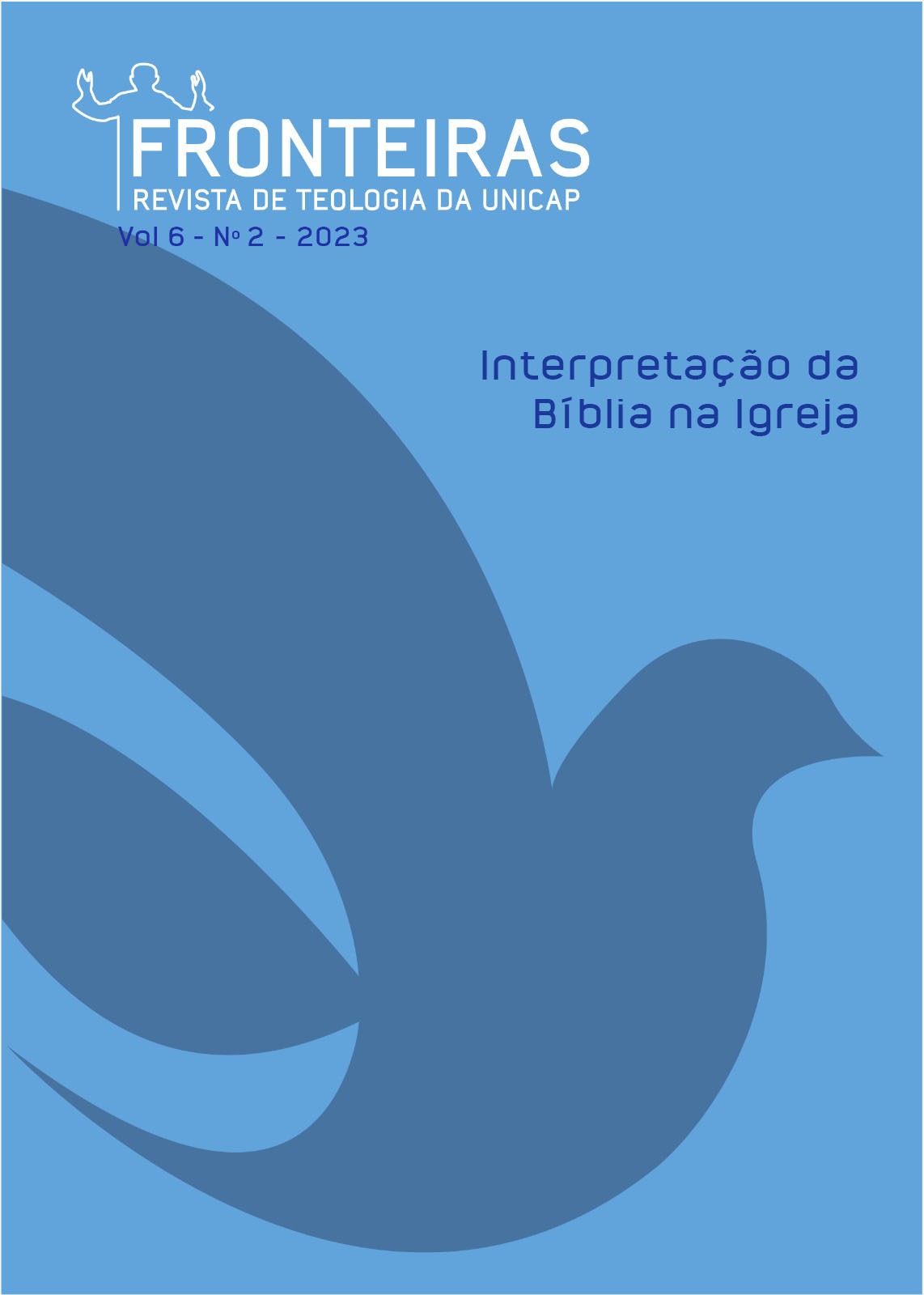Christology In Anthropological Pastoral Key
Evangelizing through the five senses
DOI:
https://doi.org/10.25247/2595-3788.2023.v6n2.p314-335Keywords:
Pope Francys, Christology, Five senses, EVangelizationAbstract
The objective of this article is to take a Christological perspective based on the five senses when facing the challenges of evangelizing in the current context. The question is: how to implement a process of evangelization centered on a personal encounter with the person of Jesus Christ, which can be relevant when faced with the profound crisis that humanity is living in? It is necessary to deal with the shadows of the world that generate relationships between people marked by indifference, patriarchy, a throwaway culture, of hatred and individualism. For its part, we believe that the culture of encounter proposed by Pope Francis can be visualized through a deepening of the experience involving the senses in evangelizing action. This reflection starts from Christology and goes through aspects of how Jesus made use of the senses in his practice of announcing the Kingdom of God, opening windows for a humanizing pastoral. After considering some reasons that justify the importance of returning to the freshness/love of Jesus, a theme that is strongly present in the pontificate of Pope Francis, this article dedicates to tracing the path of returning to biblical narratives in order to understand the way in which Jesus lives his mission, emphasizing the five senses: sight, hearing, taste, smell and touch. In conclusion, it affirms that the Christology of the senses offers important elements to better understand the human dimension of Jesus; it contributes to a process of inculturation and liturgical experience that is more coherent with an integrated anthropology without dualisms and it envisions a humanizing/mystagogical path for the continuity of the mission of Jesus of Nazareth.
Downloads
References
AMADO, Joel Portella. Igreja e grandes cidades: Estado atual da questão. In: BRUSTOLIN, Leomar A.; FONTANA, Leandro L. (org.). Cultura urbana: porta para o evangelho: a conversão pastoral como chave para a evangelização nas cidades. São Paulo: Paulus, 2018.
BENTO XVI. Deus Caritas Est. Disponível em: https://www.vatican.va/content/benedict-xvi/pt/encyclicals/documents/hf_ben-xvi_enc_20051225_deus-caritas-est.html. Acesso em: 14 fev. 2023.
BÍBLIA. Português. A Bíblia de Jerusalém. Nova edição rev. e ampl. São Paulo: Paulus, 2004.
BINGEMER, Maria Clara. Gosto, Sabor e Paladar. 2015. Disponível em: http://agape.usuarios.rdc.puc-rio.br/amai/gostosabor.pdf. Acesso em: 14 fev. 2023.
BRAVO PÉREZ, Benjamín. A cultura, porta de entrada à cidade. In: BRUSTOLIN Leomar A.; FONTANA, Leandro L. (org.). Cultura urbana: porta para o evangelho: a conversão pastoral como chave para a evangelização nas cidades. São Paulo: Paulus, 2018.
CAMBÓN, Enrique. Assim na Terra como na Trindade: o que significam as relações trinitárias na vida da sociedade? São Paulo: Cidade Nova, 2000.
CELAM. Documento de Aparecida. São Paulo: Paulus; Paulinas, 2007. (V Conferência Geral do Episcopado Latino-Americano e do Caribe)
LLACH, María Josefina. Elogio del tacto y del contacto reflexiones teológicas acerca del lenguaje del Papa Francisco. Revista Teología, n. 114, p. 105-129, ago. 2014.
PAPA FRANCISCO. Carta Encíclica Lumen Fidei. Brasília, DF: Ed. CNBB, 2013. (Documentos Pontifícios, 16).
PAPA FRANCISCO. Evangelii Gaudium. A alegria do evangelho. Sobre o anúncio do evangelho no mundo atual. São Paulo: Paulinas, 2013.
PAPA FRANCISCO. Gaudete et Exsultate. Sobre a chamada à santidade no mundo atual. Brasília, DF: Ed. CNBB, 2018.
PAPA PAULO VI. Exortação apostólica Evangelii Nuntiandi. Disponível em: http://www.dhnet.org.br/direitos/anthist/marcos/edh_enciclica_evangelii_nuntiandi.pdf. Acesso em: 10 abr. 2023.
TUTAS, Maria Rodica. A arte da vida espiritual. Brasília, DF: Teixeira Gráfica e Editora, 2015.
Downloads
Published
Issue
Section
License
Copyright (c) 2023 Rogério Luiz Zanini

This work is licensed under a Creative Commons Attribution 4.0 International License.
Autores que publicam nesta revista concordam com os seguintes termos:
- Autores mantém os direitos autorais e concedem à Fronteiras - Revista de Teologia da Unicap o direito de primeira publicação, com o trabalho simultaneamente licenciado sob a Licença Creative Commons Attribution que permite o compartilhamento do trabalho com reconhecimento da autoria e publicação inicial nesta Revista.
- Autores têm autorização para assumir contratos adicionais separadamente, para distribuição não-exclusiva da versão do trabalho publicada nesta revista (ex.: publicar em repositório institucional ou como capítulo de livro), desde que reconheça e indique a autoria e a publicação inicial nesta Revista.
- Autores têm permissão e são estimulados a publicar e distribuir seu trabalho online (ex.: em repositórios institucionais ou na sua página pessoal) a qualquer momento depois da conclusão de todo processo editorial, já que isso pode gerar alterações produtivas, bem como aumentar o impacto e a citação do trabalho publicado (Veja O Efeito do Acesso Livre).






















